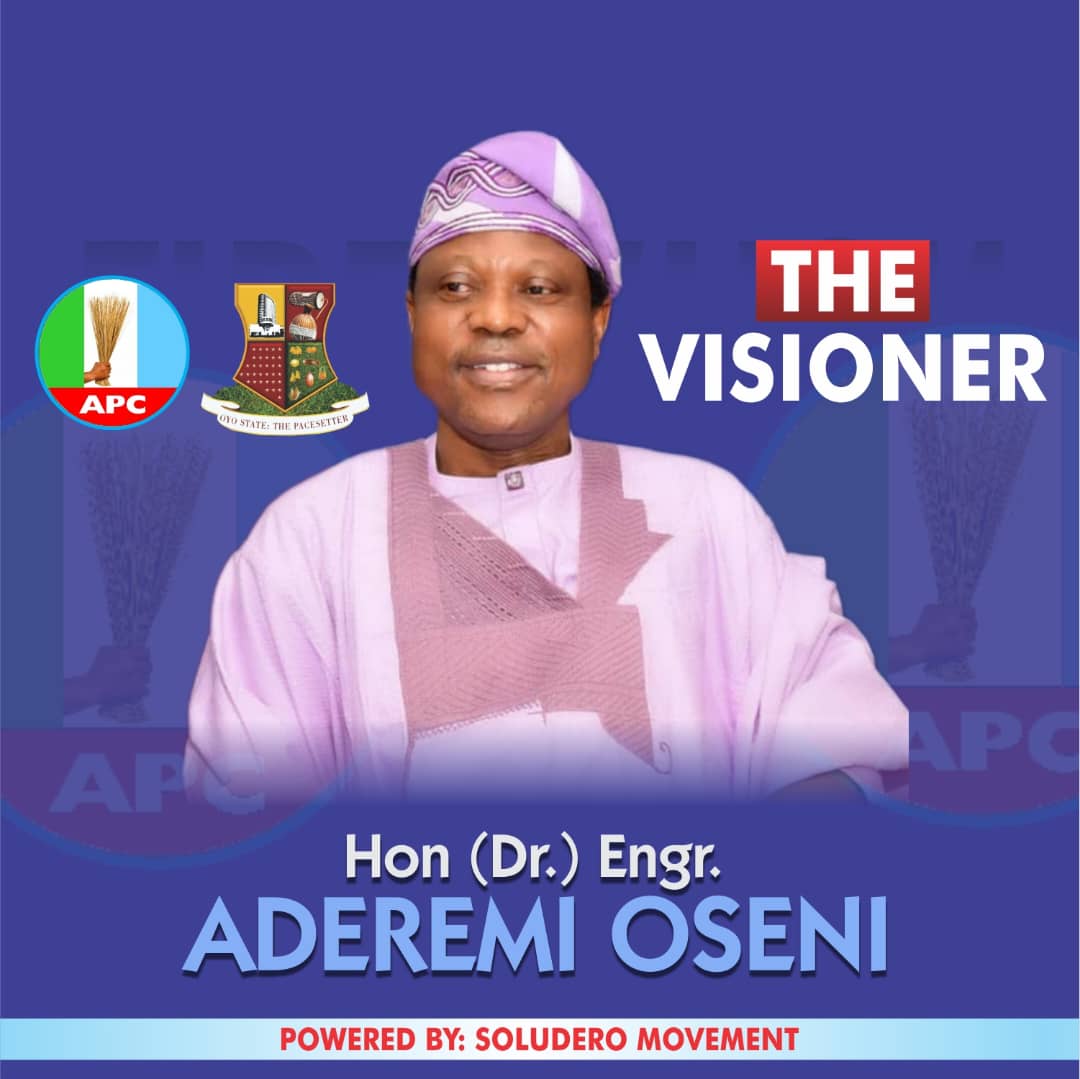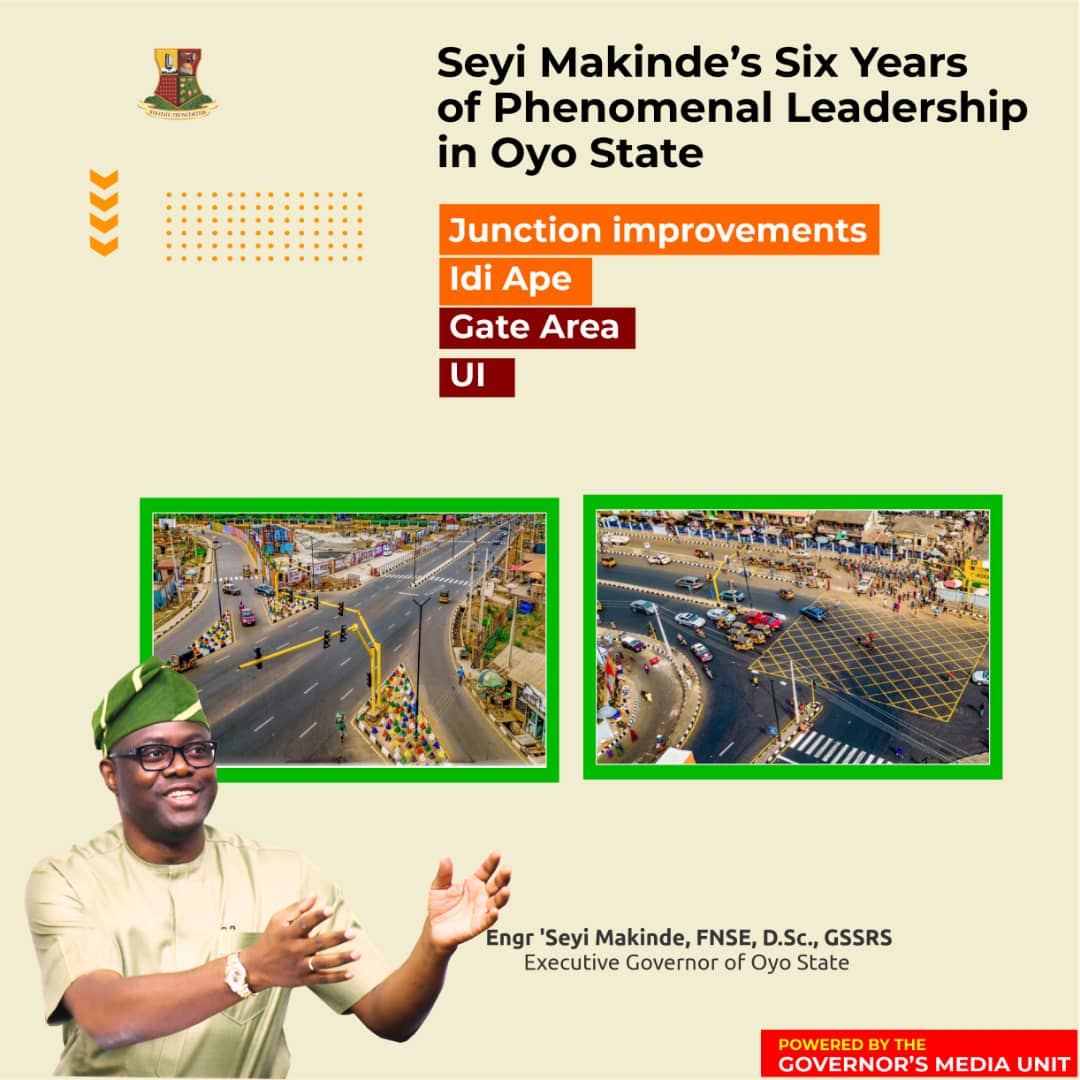The Yoruba have a saying, “okú ń ṣọ̀fọ̀ òkú”, meaning “the dead are mourning the dead”. Nine days ago, Alao-Akala and other prominent politicians were at Mapo Hall, Ibadan, to attend the burial of Saliu Adetunji, the Olubadan of Ibadanland. Less than a month earlier, he had attended the burial of Jimoh Oyewunmi, Soun of Ogbomosho land — and today, he is no more. Indeed, death is a patternless mystery.
Christopher Adebayo Alao-Akala was born on June 3, 1950, in Ogbomoso, Oyo state. He had his elementary education in Osupa Baptist Day School, Ogbomoso and proceeded to the Kamina Barracks Middle School, 5th Battalion of Infantry in Tamale, Ghana. He bagged a diploma in business administration in 1998; doctor of civil law (DCL) honoris causa, Ladoke Akintola University of Technology (LAUTECH), Ogbomoso (2006); doctor of science in political science from Lead City University, Ibadan (2008).

CAREER IN THE POLICE FORCE
Alao-Akala enlisted as cadet inspector of police in June 1974 at the Nigeria Police College, Ikeja, from where he was recommended for training at Hendon Police College in London. He also attended the Administrative Staff College, Topo, Badagry; the Nigeria Institute of International Affairs (NIIA), Victoria Island, Lagos; Police Staff College, Jos; Command and Staff College, Jaji and participated as a Nigerian delegate at two INTERPOL conferences in France and Spain.

From being a station officer in the force, he went on to become the administrative officer, federal operations (FEDOPS), at the force headquarters in Lagos, eventually taking up the role of operations officer. Alao-Akala rose to the position of personal assistant to the assistant inspector-general of police and subsequently the aide-de-camp (ADC) to late Sunday Adewusi, then inspector-general of police.
He held several command positions in the police force. He served in the capacity of the divisional police officer, Bode Thomas; Iponri police station, Nigeria Railways, Ebutte Meta — all in Lagos state.

He was also the area commander, Western District, Nigeria Railway Police, Ibadan; chief superintendent of police (CSP), admin, Gongola state command, Yola; CSP admin, Kwara state command; assistant commissioner of police, Agodi area command, Ibadan.
Alao-Akala retired from the Nigeria police force in September 1995 as the assistant commissioner of police in charge of logistics and supply, Oyo state police command, Eleyele.
POLITICAL JOURNEY
Alao-Akala ventured into politics in 1996, starting off as a member of New Dimension. He contested and won the chairmanship seat of Ogbomoso North LGA on the platform of APP in 1998.
He was elected as the vice-chairman of the Association of Local Government of Nigeria (ALGON), Oyo state chapter, between 1999 and 2002. Alao-Akala founded the Ogbomoso Unity Forum, a political association that later joined the PDP.
He was the chairman of Ogbomoso North LGA from 1999 to 2002.
‘SPARE-TYRE’ DEPUTY TO ‘OYATO’ GOVERNOR
Alao-Akala served as deputy-governor of Oyo state from May 2003 to January 2006 in the administration of Rashidi Ladoja. On January 12 2006, Ladoja was impeached, making way for Alao-Akala to become governor. Ladoja’s impeachment was overturned by the supreme court which upheld an earlier judgement of the appeal court invalidating the impeachment, bringing an end to Alao-Akala’s 11-month rule.
In a 2020 interview with PUNCH, the Ogbomosho-born politician said he was treated badly by his boss while he served as deputy governor. Alao-Akala said he was not assigned administrative duties but was “just going to the office to read newspapers”.
“If there was anything worse than spare tyre, I was treated worse. You even take care of spare tyre because of emergency needs but this spare tyre was left deflated so I could not be used,” he said.
“As deputy governor, I was not treated well at all. I was just going to the office to read newspapers. I was not assigned roles. I just forced myself in; they didn’t allow me. When my boss was reinstated as governor after the impeachment saga, he removed me from the deputy governor’s office and put me outside the secretariat, very close to the present ministry of environment.
“My office was outside the secretariat. Secondly, he prevented me from attending the executive council meeting. Till that regime ended, I did not attend executive council meetings.”
He contested and won the governorship election in 2007 on the platform of the Peoples Democratic Party (PDP) and ruled till 2011.
He sought re-election for a second term in office in 2011, and again in 2015, but lost to the late Abiola Ajimobi. Alao-Akala defected to the All Progressives Congress (APC) in December 2017 but switched to Action Democratic Party (ADP) in 2019 after failing to secure the APC governorship ticket. He lost the election to Seyi Makinde — and later returned to the APC.
THE COMEBACK OF JANUARY 12
Ladoja was impeached by the state house of assembly on January 12, 2006. Mark the date. His impeachment, argued to have been illegal and later ruled so by the supreme court, ushered in Alao-Akala as governor. There were claims that the latter played a role in his boss’s impeachment, an allegation he denied.
“I did not play any role in the impeachment. I was right in Ogbomoso when the impeachment was done. I was not in Ibadan. If I knew, I wouldn’t have allowed that impeachment to take place. I would have just advised them to let us talk to my boss. My boss was adamant; he was fighting at all fronts that time and that was why they were able to hit at him. He thought I was part of it, but I was not,” he told journalists in July 2020.
“He knew I wasn’t part of it because I left Ibadan for all of them when I was about to be killed on 18th of December, 2005. I nearly lost my life.”
Sixteen years later, on exactly the same date– January 12, Alao-Akala passed on, aged 71.
A MAN OF MANY NICKNAMES
‘Oyato’, ‘ATM’, ‘bling bling governor’ — Alao-Akala earned himself many nicknames for varying reasons.
He said he was called ‘oyato governor’ because he made a difference when he assumed power and was nicknamed ‘Akala ATM’ because he knew how to make money available.
“When I became governor, I had a vision and the vision was to transform Oyo state, to do something different from what I met on ground. There were lots of changes,” he said.
“We physically showed it to the world there were changes and when they saw it that there was really a change, they started calling me “Oyato”.
“They also called me ATM, why because all they need to do is to put a pin in my mouth for me to bring money out. And one thing about me is that I know how to make money available for people.
“I coughed out a lot of money into the system. Lots of people enjoyed their businesses. That was what happened. You don’t need to see Akala before you get money and because the money was available to them, they started calling me Akala ATM.”
Alao-Akala often appeared in public wearing gold wristwatches, gold-plated chains and bangles, a lifestyle he said he adopted in Ghana, hence ‘bling bling governor’.
“FRAUD’ CASE WITH EFCC
In March 2018, the Economic and Financial Crimes Commission (EFCC) re-arraigned Alao-Akala and two others over allegations of N11.5 billion fraud.
Hosea Agboola, a former Oyo state commissioner for local government and chieftaincy matters, and Femi Babalola, an Ibadan-based businessman, were the other defendants.
They were first arraigned in 2012.
The defendants faced an 11-count charge of conspiracy, “awarding contract without budgetary provision, obtaining by false pretence, acquiring property with money derived from illegal act and concealing the ownership of such property,” among others.
Alao-Akala was alleged to have awarded a road contract worth N8.5 billion to Pentagon Engineering Services, a firm owned by Babalola, without budgetary allocation when he was governor.
He was also accused of conspiring with Agboola to withdraw N2.9 billion from Oyo state’s local government joint account.
The trio pleaded not guilty and filed a no-case submission on the charges levelled against them. However, an Ibadan high court ruled in July 2015 that Alao-Akala had a case to answer and ordered him to enter his defence.
In December 2021, the court of appeal sitting in Ibadan discharged and acquitted Alao-Akala of the N11.5 billion fraud case.
A PRODUCT OF GRACE
Speaking during the launch of his autobiography, ‘Amazing Grace’, in November 2020, Alao-Akala said his father’s death when he was two years old would have truncated his chances of success in life — but grace found him.
He was raised by his grandmother popularly called Iya Alaro, whom he said had the greatest influence in his life.
“It fulfils my desire to bookmark the landmark narratives of my life, how the tragic death of my father in a road accident in 1952 single-handedly threatened to swamp my dream of getting to the cusp of my life aspirations but how providence miraculously found for me a path to the top,” he said.
“My grandmother, Iya Alaro who I knew as my mother while growing up, was that that divine grace in action, my guiding angel, who manifested as an old woman. She piloted me through those hopeless years after my father’s unfortunate demise. As I said in my book, Mama Alaro singlehandedly reconstructed my fractured childhood. I am a product of grace.”
He said in an interview that he tried his hands on a number of trades before he went to Ghana for his secondary education.
“At a point, I became a mechanic. At a time, I became a farmer and at another time, I became a tailor after primary education before I went to Ghana. You have to know how to trust in God and do things moderately. Women (womanise), moderately, drink moderately. I had a lot of people smoking around me, I tried it but it didn’t go down well with me,” he said.
“For a toddler who lost his father at age two, and whose widowed mother’s anguish knew no bound—more so being a young woman—the future did not hold any promise for me.”
POLYGLOT, BUSINESSMAN, WRITER
Beyond his works in public service, Alao-Akala was a businessman. He was the founder and chairman of TDB Global Ventures and Parrot FM radio station, both in Ogbomoso. The father of seven children was a polyglot who spoke English, Yoruba, Hausa and three Ghanaian languages — Twi, Fanti and Dagbani.
He has written and published a number of works on policing, including ‘Training of police cadet Inspectors: Prospects and Problems (May 1985)’; ‘Police and The Media: A Critical Approach (June 1990)’; ‘Conflict Resolution and Crime in Local Governments (September 2004)’.
Alao-Akala has also received honorary chieftaincy titles, among which are Otunba of Akinmorin, Bobajiro of Owu Kingdom, Basorun Atunluto of Akure, Mayegun of Okeho, Akogun of Ilua, Aare Asoludero of Ibarapa, Agbaakin of Iseyin, Ariwajoye of Ede land, Atunluse of Ife Odan, Balogun of Igbojaye land, Aare Kebimapalu of Oyo State and Bobagunwa of Ogbomosoland.
Until his death, Alao-Akala was the chairman of the APC Elders Advisory Council on Oyo state. He was charged with reconciling aggrieved members of the party ahead of the 2023 elections.

